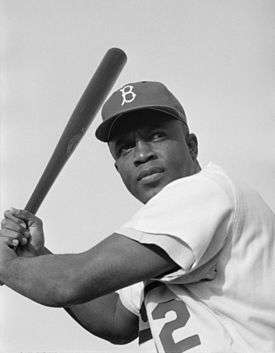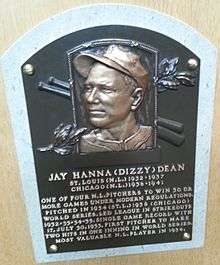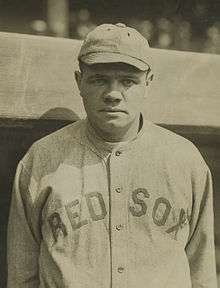Majestic Park (baseball)
|
Dean Field (1935-1947) Jaycee Park (1947-Present) | |
| Former names | Majestic Park; Dean Field |
|---|---|
| Location |
Belding Street and Carson Street 200 W. Belding Street Hot Springs, AR 71901 |
| Coordinates | 34°29.7274′N 93°3.0985′W / 34.4954567°N 93.0516417°W |
| Owner | Hot Springs Boys and Girls Club |
| Operator | Hot Springs Boys and Girls Club |
| Capacity | 1,500 |
| Surface | Grass |
| Construction | |
| Broke ground | 1908 |
| Opened | 1908 |
| Renovated | 1909, 1919, 1947, |
| Expanded | 1909, 1947 |
| Closed | 1918 |
| Demolished | 1918, 1947 |
| Tenants | |
|
Major League Spring Training Detroit Tigers (1908) Boston Red Sox (1909-1910, 1912-18) Cincinnati Reds (1910-1911) Brooklyn Dodgers (1910) St. Louis Browns (1911) Baseball Schools Ray Doan Baseball School Rogers Hornsby Baseball College George Barr Umpire School Minor League Hot Springs Bathers (CSL) (1947-55) Chicago White Sox-Minor League Camp (1948-51)[1] | |
One of the first spring training facilities, Majestic Park (1908–18) was the original baseball facility, on a parcel at the corner of Belding Street and Carson Street in Hot Springs, Arkansas. The original Majestic Park was the spring training site of the Boston Red Sox (and their star pitcher Babe Ruth), (1909-1910, 1912–18), Cincinnati Reds (1910-1911), Brooklyn Dodgers (1910) and St. Louis Browns (1911). The location later became the site of Dean Field (1935-1947) and Jaycee Park (1947-Present). Dean Field served as home to the Rogers Hornsby Baseball College. The Hot Springs Bathers minor league team and the Chicago White Sox (1948–51) minor league Spring Training were held at Jaycee Park, which also hosted the 1952 Negro League World Series and a 1953 exhibition game featuring Jackie Robinson.[1][2] The site hosted many Major League Spring Training Games and can claim both Home Run record holders, Babe Ruth and Hank Aaron as among those who have played at the site. In 1914, Babe Ruth was just beginning his career (as a dominant left-handed pitcher) for the Red Sox, while a young Aaron performed there in 1952.[1][3][4]
There are four historical plaques at the site today, as part of the Hot Springs Historic Baseball Trail as Majestic Field itself, Rogers Hornsby, Jackie Robinson and Hank Aaron each have historical plaques on the site.[5]

Baseball in Hot Springs
Often called the "birthplace" of Spring Training baseball, Hot Springs first welcomed Major League Baseball in 1886, when the Chicago White Stockings (now the Chicago Cubs), brought their coaches and players to the city in preparation for the upcoming season.[6][7] Team President Albert Spalding (owner of Spalding Sporting Goods) and the team's player/manager Cap Anson, thought the city was an ideal training site for the players. The first baseball location was Hot Springs Baseball Grounds. Many other Major League teams followed and began training in Hot Springs. Needing venues for teams to use, Whittington Park was built in 1894, followed by Majestic Park (1908) and Fogel Field (1912).[7] 134 members of the Baseball Hall of Fame are documented to have trained or played, in Hot Springs.[5]

History of Majestic Field Site
In 1908, the Detroit Tigers created the baseball field at the site as a place to practice. In 1909, seats were added as Majestic Park was created/enhanced by Boston Red Sox owner John I. Taylor, who signed a five-year lease on the property as a Spring Training location. Trolleys turned around in front of the park and the name came from the Majestic Hotel in Hot Springs.[8] Two years later, Taylor would construct Fenway Park for the Red Sox.[9][10][11] The Boston Red Sox (1909-1910, 1912–18), Cincinnati Reds (1910-1911), Brooklyn Dodgers (1910) and St. Louis Browns (AL) (1911) held Spring Training Camp at the original Majestic Park.
The Boston Red Sox won four World Series Championships, in 1912, 1915, 1916 and 1918, while training at Majestic Park. It was in 1918 spring training that the Red Sox first began to use Babe Ruth in the field, instead of exclusively at pitcher, to take advantage of his hitting.[12]
On March 29, 1918, the St. Louis, Iron Mountain and Southern Railway, owners of the Majestic Park property cancelled the Red Sox lease for 1919 to utilize the ballpark area for railroad needs.[13] Subsequently, the site has had three major fields. In 1918, the original Majestic Park facility was demolished, leading to two other fields on the property that had ties to the Major Leagues: Dean Field and Jaycee Park.[14] The relocated field was renamed "Dean Field" in 1938 after Hall of Famer Dizzy Dean and his brother "Daffy" Paul Dean. Jaycee Park was built on the adjacent south side of the lot in 1947 to replace Ban Johnson Park, which was located across town.[15][16]

When Dean Field (1935-1947) and Jaycee Park (1947-Present) evolved, they hosted the Rogers Hornsby Baseball College, the George Barr Umpire School, the Chicago White Sox (1949–52) Minor League Spring Training and the Hot Springs Bathers as tenants.[17][18]
The Bathers (1947-1955) were a Cotton States League team that was an affiliate of the Chicago White Sox (1947-1951), St. Louis Cardinals (1954) and the Kansas City Athletics (1955). Paul Dean Managed the 1954 team.[19][20]
Among players who played at the site are: Babe Ruth, Jackie Robinson, Hank Aaron, Ty Cobb, Honus Wagner, Jimmie Foxx, Gil Hodges, Harry Hooper, Cy Young, Rogers Hornsby, Grover Cleveland Alexander, Herb Pennock, Tris Speaker, and Walter Johnson.[14] The Sporting News (1998) ranking of the greatest players ever listed: Babe Ruth (1), Ty Cobb (3), Walter Johnson (4), Hank Aaron (5) and Rogers Hornsby (9).[21]
In 1953, the Hot Springs Boys and Girls Club opened their facility on the parcel at 109 W Belding Street, where they remain today. Jaycee Park and the surrounding fields are utilized for youth baseball.
Baseball Schools
The Roy Doan Baseball School operated from 1934–38, attracting hundreds of students and utilized Dean Field and other locations throughout Hot Springs.[16] In 1939, Hall of Fame player and manager Rogers Hornsby, a former instructor with Roy Doan, started his own Rogers Hornsby Baseball College. Hornsby's six-week event ran until 1952, annually attracting 100-200 prospective professionals and numerous major league scouts. Cy Young, Jimmie Foxx, Tris Speaker and Schoolboy Rowe were among the instructors. The George Barr Umpire School, the first ever training school for aspiring umpires, operated in Hot Springs through 1940, being held in conjunction with the baseball schools.[22][23][24][25]
Babe Ruth
Babe Ruth played at Majestic Park for six seasons. In 1914, the lefty pitcher first faced Major League players as a young minor leaguer. Ruth would make the Red Sox Major League roster in 1915 and establish himself as a star pitcher.[26] In 1918, during Spring Training, Ruth played first base as an emergency measure in a game against Brooklyn at Whittington Field/Ban Johnson Park. The game helped change baseball history. Ruth then hit two home runs that day and the second was a reported 573-foot home run that landed in the Arkansas Alligator Farm across the street. As a result, the Red Sox began to use Ruth as both a pitcher and a hitter. With Ruth regularly in the 1918 lineup, he led the American League with 11 home runs. He also pitched to a 13-7 record and the Red Sox won the World Series.[27] Sold to the New York Yankees in 1920, Ruth went on to total 714 Home Runs, a record that stood until broken by Hank Aaron.[27][28][29]

Jackie Robinson
On October 22, 1953, Jackie Robinson played in an exhibition game at Jaycee Park. Having broken Major League Baseball's color barrier in 1947, Robinson and the some other Major League players (including his Dodgers teammate Gil Hodges) toured, calling themselves Jackie Robinson's All-Stars. Robinson's squad played the Negro American League All-Stars that day, losing 14-9.[30] Today, there is a plaque at the site as part of the "Hot Springs Baseball Historic Trail" honoring the event.[31]
Hank Aaron: Negro League World Series

In 1952, as referenced in a plaque at the site,[32] 18-year old shortstop Hank Aaron played for the Negro League Indianapolis Clowns against the Birmingham Black Barons at Jaycee Park in the Negro League World Series. The World Series was eventually won by the Clowns, with Aaron hitting 5 Home runs and batting over .400. The 1952 World Series was also the last for the Negro Leagues.[33] Discovered by the Clowns while playing for a semi-pro team (Mobile Black Bears) in a game against them, they signed Aaron in April, 1951. After his performance in the Negro League World Series, Aaron signed with the Boston Braves. Hank Aaron would eventually become baseball's all-time Home Run leader, with 755 career Home Runs, breaking Babe Ruth's record of 714 on April 8, 1974.[34][35][36]
Media
The First Boys of Spring is a 2015 documentary on the history of Hot Springs Spring Training. The film features Majestic Park items. Produced by Arkansas filmmaker Larry Foley, it is narrated by Hot Springs area native, actor Billy Bob Thornton.[37][38][39] The Foley documentary was aired nationally on the MLB Network beginning in February, 2016.[40]
Site Today
Today, the site is the location of the Hot Springs Boys And Girls Club and the Jaycee Park Baseball Complex still hosts baseball and softball. The complex now has eight fields, with Jaycee Park remaining the largest. At Jaycee Park, original 1st base side cement bleachers are still intact.[14][41][42]
Today, as part of the Hot Springs Baseball Historic Trail, there are four plaques that have been erected at the site: Majestic Field, Hank Aaron, Jackie Robinson and Rogers Hornsby:
The Majestic plaque reads:
Majestic Field Built in 1909 as the Boston Red Sox training center, this field was also used by the Cincinnati Reds and Brooklyn Dodgers. In March 1918, during batting practice, Babe Ruth hit many home runs over the distant center field fence, predicting his change from pitcher to slugging outfielder. Cy Young, Tris Speaker, Smoky Joe Wood and many others also trained here.[43]
Hank Aaron's plaque reads:
At this field on October 1, 1952, 18-year old Hank Aaron and the Indianapolis Clowns played in one of 12 games of the Negro League World Series against the Birmingham Black Barons. During this series, Aaron he batted .402 and slugged five home runs leading his team to the championship. “Hammerin’ Hank” eventually broke Babe Ruth’s home run record by recording 755 Major League home runs.[44]
The plaque for Jackie Robinson says the following:
One of the most important events in Hot Springs history occurred where you are standing. On October 22, 1953, the legendary Jackie Robinson, played an exhibition game here at Jaycee field with Gil Hodges, Luke Easter and other fellow Big Leaguers. He is recognized as the man who broke the color barrier in Major League baseball.[45]
The Rogers Hornsby plaque at the site reads:
At the conclusion of his historic Hall of Fame career, Rogers “The Rajah” Hornsby returned to Hot Springs to oversee the nationally-recognized baseball school. Founded here in 1933 by Ray Doan, the school prospered for years, training young players from around the country. Instructors included George Sisler, Grover Cleveland Alexander and Dizzy Dean.[46]
External links
- Hot Springs Spring Training Photos: http://www.digitalballparks.com/SpringTraining/BanJohnson.html
- Hot Springs Historic Baseball Trail: http://www.hotspringsbaseballtrail.com/
References
- 1 2 3 "Arkansas Baseball Encyclopedia | Majestic Park". Arkbaseball.com. Retrieved 2016-02-24.
- ↑ "Arkansas Baseball Encyclopedia | Archives". Arkbaseball.com. 1963-05-23. Retrieved 2016-02-24.
- ↑ "Baseball In Arkansas Project » Majestic Park". Arkbaseball.com. Retrieved 2016-02-24.
- ↑ "Majestic Park | My Blog". Arkansasdiamonds.wordpress.com. Retrieved 2016-02-24.
- 1 2 "Historic Baseball Trail Documenting Hot Springs as Birthplace of Spring Baseball Will Open on March 29; 45 Percent of Hall of Fame, Other Legendary Players Included". Marketwired.com. 2012-03-26. Retrieved 2016-02-24.
- ↑ "arlington hotel, oaklawn, gangster museum, hot springs baseball trail, historical landmarks | Hot Springs, Arkansas". Hotsprings.org. Retrieved 2016-02-24.
- 1 2 "Major League Spring Training in Hot Springs". Encyclopedia of Arkansas. Retrieved 2016-02-24.
- ↑ http://archives.arkansasnews.com/search/level+2+trauma+center+for+arkansas/page/2179/blank/page/1469/void%280%29;/*1235661623495*/page/1854/
- ↑ Murray, James (1993-03-22). "When Baseball Sprang for Hot Springs". Si.com. Retrieved 2016-02-24.
- ↑ "The Land of Hot Waters". Chapters.sabr.org. 2012-04-03. Retrieved 2016-02-24.
- ↑ "All Those Springs Ago.....". Fenwaypark100.org. 2012-03-27. Retrieved 2016-02-24.
- ↑ "Boston Red Sox Team History & Encyclopedia". Baseball-Reference.com. Retrieved 2016-02-24.
- ↑ "1918 BOSTON RED SOX (SPRING TRAINING)". Fenwayparkdiaries.com. Retrieved 2016-02-24.
- 1 2 3 "Arkansas Baseball Encyclopedia | Majestic Park". Arkbaseball.com. Retrieved 2016-02-24.
- ↑ "Arkansas Baseball Encyclopedia | Jaycee Park". Arkbaseball.com. 1963-05-23. Retrieved 2016-02-24.
- 1 2 "Arkansas Baseball Encyclopedia | Dean Field". Arkbaseball.com. 1963-05-23. Retrieved 2016-02-24.
- ↑ Arkansas Baseball Encyclopedia | Dean Field
- ↑ Baseball In Arkansas Project » Jaycee Park
- ↑ Hot Springs, Arkansas Register History | Baseball-Reference.com
- ↑ 1954 Hot Springs Bathers Statistics - Register | Baseball-Reference.com
- ↑ "100 Greatest Baseball Players by The Sporting News : A Legendary List by Baseball Almanac". Baseball-almanac.com. Retrieved 2016-02-24.
- ↑ "Arkansas Baseball Encyclopedia | George Barr Umpire School". Arkbaseball.com. 1963-05-23. Retrieved 2016-02-24.
- ↑ "Arkansas Baseball Encyclopedia | Ban Johnson Field". Arkbaseball.com. Retrieved 2016-02-24.
- ↑ "Hot Springs Baseball Tour". Hsbbt.toursphere.com. Retrieved 2016-02-24.
- ↑ "Arkansas Baseball Encyclopedia | Dean Field". Arkbaseball.com. 1963-05-23. Retrieved 2016-02-24.
- ↑ Adomites, Paul. "Babe Ruth's First Spring Training - Babe Ruth | HowStuffWorks". Entertainment.howstuffworks.com. Retrieved 2016-02-24.
- 1 2 "Babe Ruth Statistics and History". Baseball-Reference.com. Retrieved 2016-02-24.
- ↑ "Home Run That Changed Baseball, Hot Springs, Arkansas". Roadsideamerica.com. Retrieved 2016-02-24.
- ↑ "Bill Jenkinson - Hot Springs Baseball". Billjenkinsonbaseball.webs.com. Retrieved 2016-02-24.
- ↑ "Arkansas Baseball Encyclopedia | Jackie Robinson's All-Stars Exhibitions". Arkbaseball.com. Retrieved 2016-02-24.
- ↑ "Jackie Robinson - Hot Springs Arkansas Historic Baseball Trail". Hotspringsbaseballtrail.com. 1953-10-22. Retrieved 2016-02-24.
- ↑ "Hank Aaron - Hot Springs Arkansas Historic Baseball Trail". Hotspringsbaseballtrail.com. 1952-10-01. Retrieved 2016-02-24.
- ↑ "See The Trail - Hot Springs Arkansas Historic Baseball Trail". Hotspringsbaseballtrail.com. Retrieved 2016-02-24.
- ↑ "Hank Aaron - Played In Negro League And Major League - Babe Ruth Accomplishments, Home, and Braves - JRank Articles". Sports.jrank.org. Retrieved 2016-02-24.
- ↑ "Negro Leagues Baseball eMuseum: Personal Profiles: Henry "Hank" Aaron". Coe.k-state.edu. Retrieved 2016-02-24.
- ↑ Heaphy,Leslie A. The Negro Leagues, 1869-1960p.222
- ↑ Bauman, Bonnie. "Boys of Spring". Arkansas Life. Retrieved 2016-02-24.
- ↑ "Home". Thefirstboysofspring.weebly.com. Retrieved 2016-02-24.
- ↑ "Larry Foley - Home". Larryfoley.weebly.com. Retrieved 2016-02-24.
- ↑ Newman, Mark (2016-01-20). "MLB Network to air 'First Boys of Spring' doc | MLB.com". M.mlb.com. Retrieved 2016-02-24.
- ↑ "Boys and Girls Club of Hot Springs". HSBGC. Retrieved 2016-02-24.
- ↑ "Jaycee Park | My Blog". Arkansasdiamonds.wordpress.com. 1947-05-01. Retrieved 2016-02-24.
- ↑ "Majestic Field - Hot Springs Arkansas Historic Baseball Trail". Hotspringsbaseballtrail.com. Retrieved 2016-02-24.
- ↑ Hank Aaron - Hot Springs Arkansas Historic Baseball Trail
- ↑ Jackie Robinson - Hot Springs Arkansas Historic Baseball Trail
- ↑ Rogers Hornsby - Hot Springs Arkansas Historic Baseball Trail